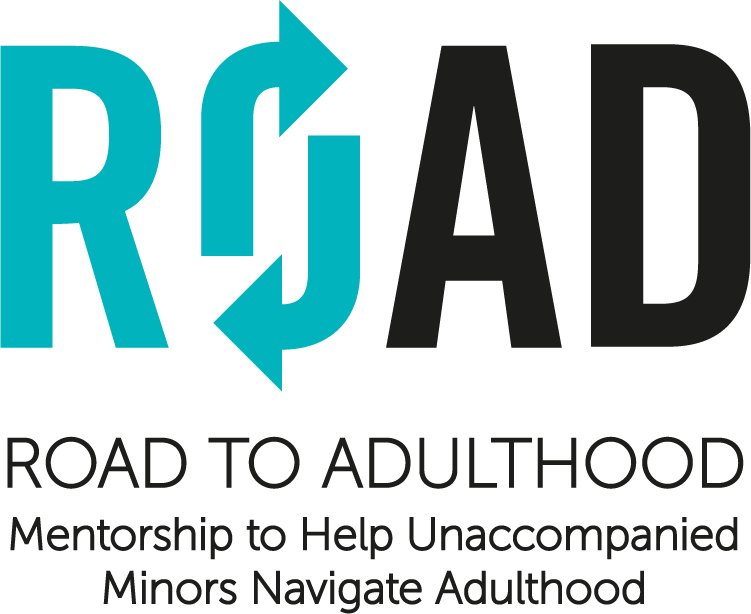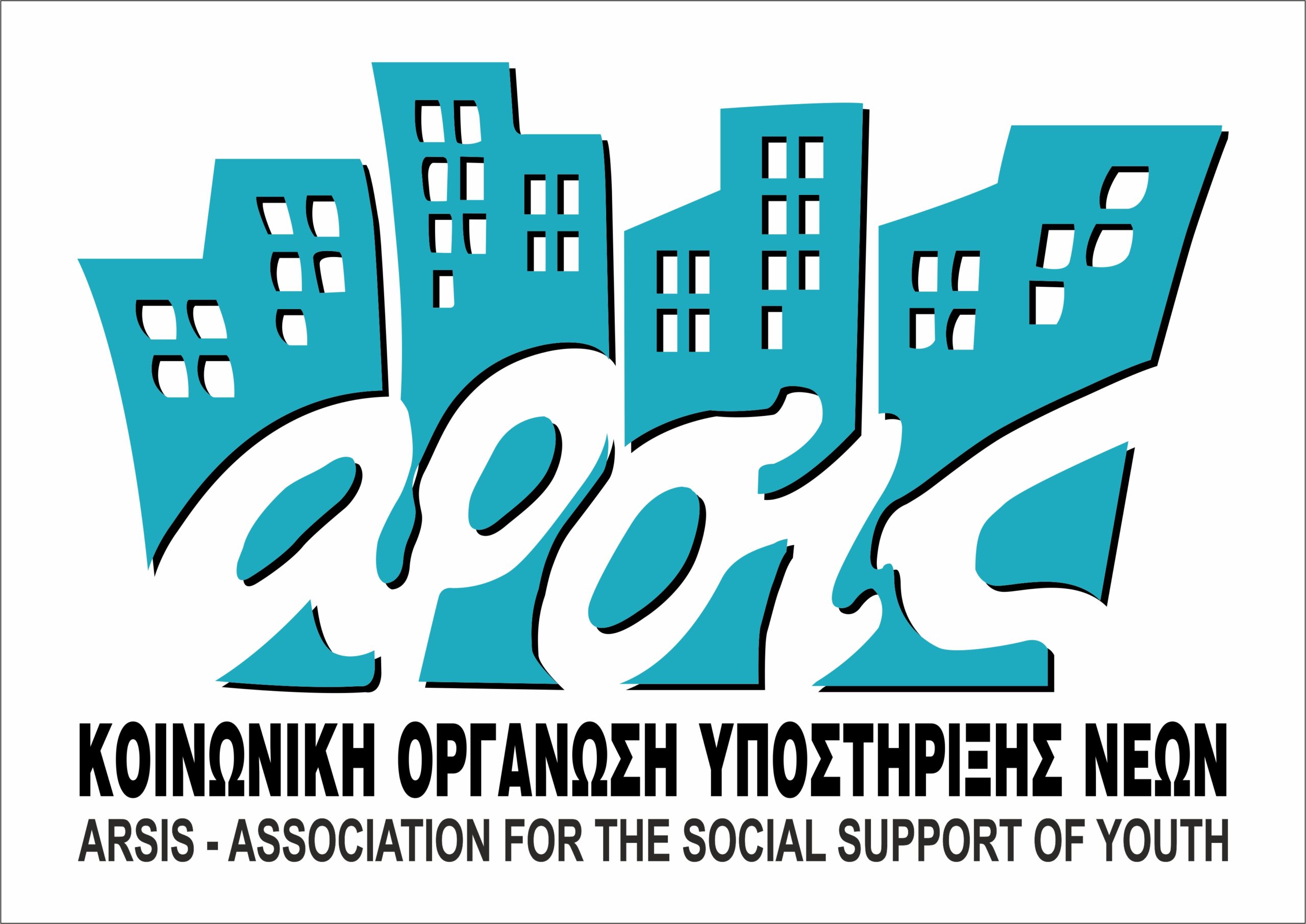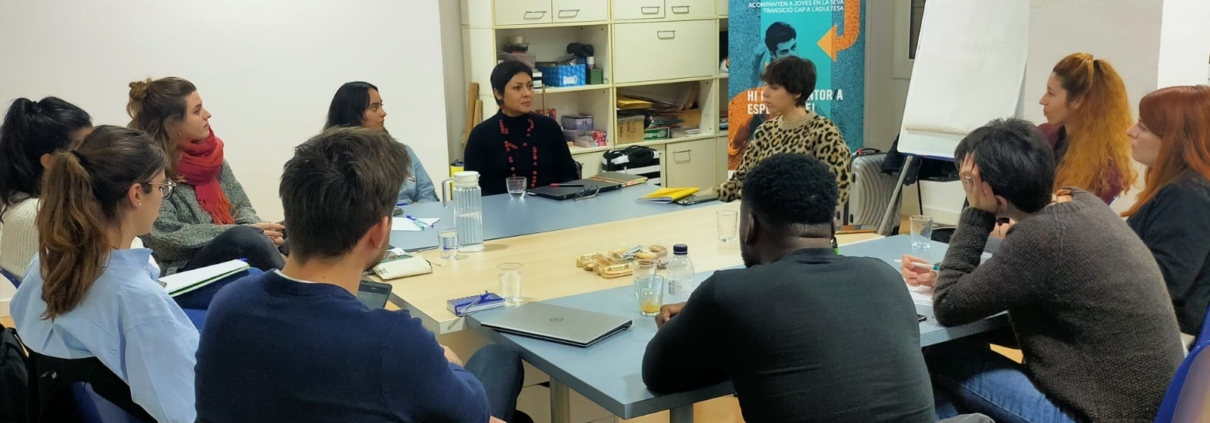RoAD to Adulthood: sharing international social mentoring learning
Punt de Referència is one of the four entities that are part of the RoAD to Adulthood international project. Mentorship Helping Migrant and Refugee Unaccompanied Minors Navigate Adulthood which aims to support unaccompanied youth (former UAM) in their transition to adulthood, while promoting their social integration.
 The RoAD project, which started in February 2022 and is financed by the European Union, is carried out in different European countries through different entities that implement social mentoring inspired by Punt de Referència’s model: ARSIS in Greece, Defence for Children International in Italy, and Mentoring Europe in the Netherlands (an association more specialized in the training of mentoring professionals).
The RoAD project, which started in February 2022 and is financed by the European Union, is carried out in different European countries through different entities that implement social mentoring inspired by Punt de Referència’s model: ARSIS in Greece, Defence for Children International in Italy, and Mentoring Europe in the Netherlands (an association more specialized in the training of mentoring professionals).
Working in a network and with a European vision
Sharing professional experience allows the exchange of mentoring training models for unaccompanied minors and youth, with a global and European vision, but with a clear willingness to act locally and deliver personalized care to migrant minors and unaccompanied refugees. Recently, Punt de Referència has led the international meeting with all RoAD participants in Barcelona. It was hours of intense and shared work; additionally, two guest participants, Eunice Romero, Director General of Migrations, Refuge and Anti-Racism of the Generalitat de Catalunya, and of Lorena Gaona, responsible for projects in Catalonia of the Federation of Entities with Assisted Flats’ projects (FEPA) shared their views with the group.
During the meeting in Barcelona, we took advantage to discuss with representatives of the three entities on what mentoring entails and the benefits of sharing joint experiences:
 ARSIS. GREECE
ARSIS. GREECE
“Mentoring helps youth who migrate to discover their abilities, to gain a broader view of the new place where they live.”
- “In ARSIS, we believe that mentoring allows young people to connect with local citizens – a mentor – which helps them to better understand the system of the country they live in, to understand their obligations as citizens and, of course, their rights.”
- “The accompaniment and bond with a mentor facilitate the young person’s connection with the place and we observe that the most important benefit that is generated through this mentoring relationship, is the feeling of belonging. We perceive social mentoring as a support for unaccompanied minors and refugee youth on their way to adulthood; we seek to be a complementary tool to support the existing institutional frameworks and means of protection of youth and children.”
- “Our idea is that the better use is made of all available means for the protection of children and youth, such as foster flats and homes, semi-independent flats, educational institutions, the greater the support that will be offered to young people. For this reason, good cooperation between the parties involved who work to protect and care for children and young people is essential.”
- “We admire the boys and girls who participate in our programs. One of the things we value most is the energy and goodwill they bring to our meetings and to meetings with their mentors. Despite the adversities they have faced in the past and which, unfortunately, they continue to suffer due to the lack of support from the State, they have the wish to believe and to discover the world! We admire and respect them immensely.”
 DEFENCE FOR CHILDREN INTERNATIONAL. ITALY
DEFENCE FOR CHILDREN INTERNATIONAL. ITALY
“Working with other EU organizations allows us to think about different solutions, raise awareness in the community and share experiences and ways to face challenges.”
- “Mentoring helps youth who migrate to become independent in the new context and to have a person that cares for them. Meaningful relationships with a mentor act as a guide for the young person towards integration in the local host community and in the mentor’s network, and at the same time makes it easier for the youngster to achieve autonomy in different aspects of life such as housing, jobs and studies.”
- “Working with young migrants helps us to better understand the difficulties they face on a social scale and in their daily lives, especially in terms of access to services and, therefore, rights such as health, documentation, housing, etc.”
https://www.defenceforchildren.it/
 MENTORING EUROPE. THE NETHERLANDS
MENTORING EUROPE. THE NETHERLANDS
”Working with other European organizations gives us new tools, energy and perspective!”
- “Mentoring helps youth who migrate to gain perspective, to see that there is a place in this world for them and to feel valued.”
- “We think that every young person has different needs and requires a personalized approach. We learn a lot from the young migrants, they open up new points of view and enrich our minds with their backgrounds.”
- “Working with other European organizations gives us new tools, energy and perspective.”
